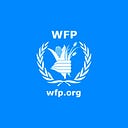Battling hunger in Zimbabwean cities
Urban dwellers dependent on the cash economy
Tatenda Macheka
Nyarai Mugarisi , a 43-year-old mother-of-four, reflects on price increases in recent months. She lives in Chiredzi, a small town in Masvingo province. Nyarai receives cash-based assistance from the World Food Programme (WFP) every month which she uses to purchase food for her family from selected retailers.
“We’re going through years of hardship which started with COVID-19, followed by drought and now inflation,” explains a weary Nyarai. “Now, there is a shortage of cooking oil and flour because of war in some far away countries where these foods are produced.
Cash based assistance involves physical bank notes, vouchers, or electronic funds and as levels of hunger and as levels of hunger rise around the world, cash from WFP gives people, like Nyarai, the power to make their own choices about what they need each month. Data from WFP shows that most of the money WFP gives to families is spent on food.
In Zimbabwe, the unstable economic situation, stagnant wages and faltering currency has driven food security in local cities. The cost of basic foods increased by an average of 57 percent over the past year, a situation which is likely to accelerate due to the stress emerging across global markets. It is estimated that approximately half of the urban families in Zimbabwe cannot afford a nutritious diet which resulted in some 472,000 people supported in 2021, under cash-based transfers, by WFP.
“We were all already struggling to make ends meet and now suddenly the cost of a two-liter bottle of oil costs three times the price,” says Niyarai.
The support provided by the European Union’s Civil Protection and Humanitarian Aid Operations department (ECHO), through WFP, helps the economic empowerment of women by providing them with access to food while increasing their decision-making power and ability to invest in livelihood opportunities. Nyarai invested in a hair plaiting business during the last year with the little money she had to spend after purchasing food for her family.
Nyarai is part of a group that enables women to save, borrow and lend to each other at a low interest rate. “Recently, with the support from my women savings group, I have been able to invest in my hair plaiting business which generates some income for me and gives me the opportunity to be independent,” smiles Nyarai.
Resilience building initiatives aims to cushion women like Nyarai and their families from challenges like the recent increase in prices being caused by the Ukrainian Crises. WFP’s Urban Food Security and Resilience Building programme seeks to meet the urgent food needs of the most vulnerable city dwellers including people with disabilities, by supporting them to carry out activities that contribute towards independance from humanitarian assistance as they are better prepared and can afford costs of food, medicine, bills, rentals and school fees from these various income streams.
WFP and Plan International Zimbabwe, with the support of The Foreign Commonwealth and Development Office (FCDO) used the urban programme as a platform to reduce gender-based violence (GBV) through the Stopping Abuse and Female Exploitation (SAFE) programme. SAFE is an initiative that aims to reduce the perpetration of intimate partner violence and other forms of violence against women and girls driven by economic insecurity and social norms operating at household-level in focal communities. The chances that Nyarai falls into food insecurity decrease if she has a stable income and is not a victim of GBV.
Over the last year, cash assistance in urban areas has been possible thanks to the European Union’s Civil Protection and Humanitarian Aid Operations department (ECHO), the United Kingdom’s Foreign, Commonwealth and Development Office (FCDO) and the contributions from private donors. Partners supporting urban resilience-building are the United States Bureau of Humanitarian Assistance (BHA) and the Swiss Development Cooperation (SDC).
Read more about WFP’s work in Zimbabwe
